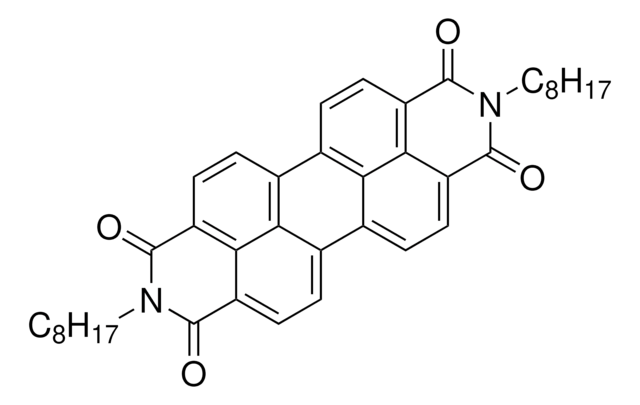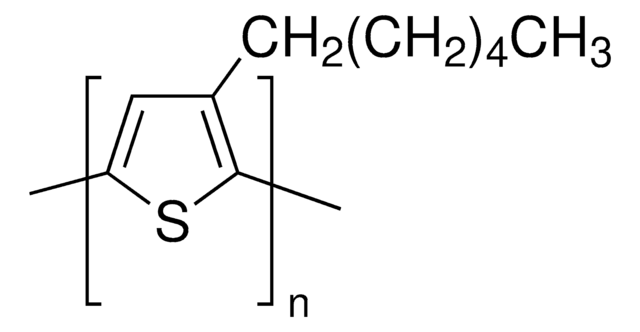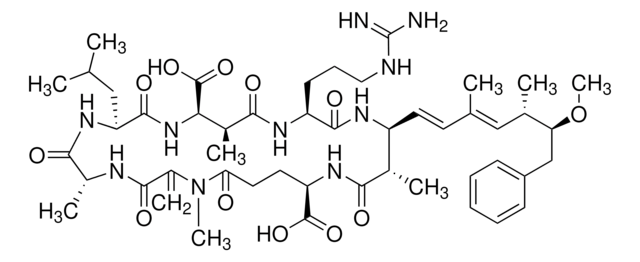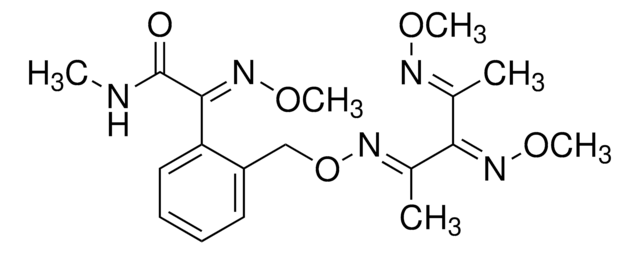747092
C8-BTBT
≥99% (HPLC)
Synonym(s):
2,7-Dioctyl[1]benzothieno[3,2-b][1]benzothiophene
About This Item
Recommended Products
Assay
≥99% (HPLC)
form
powder
mp
108-112 °C
semiconductor properties
P-type (mobility=5.5 cm2/V·s)
SMILES string
CCCCCCCCC1=CC2=C(C=C1)C3=C(C(C=CC(CCCCCCCC)=C4)=C4S3)S2
InChI
1S/C30H40S2/c1-3-5-7-9-11-13-15-23-17-19-25-27(21-23)31-30-26-20-18-24(22-28(26)32-29(25)30)16-14-12-10-8-6-4-2/h17-22H,3-16H2,1-2H3
InChI key
YWIGIVGUASXDPK-UHFFFAOYSA-N
General description
Application
Legal Information
Storage Class Code
11 - Combustible Solids
WGK
WGK 3
Flash Point(F)
Not applicable
Flash Point(C)
Not applicable
Choose from one of the most recent versions:
Already Own This Product?
Find documentation for the products that you have recently purchased in the Document Library.
Articles
Dr. Chan and researchers highlight flexible transistors are the building blocks of next-generation soft electronics. Among all the reported material systems that can be fabricated by researchers, such as circuits, biosensors, stretchable displays, and others,1–5 small molecular weight organic semiconductors are among the most promising candidates for flexible transistor applications. For these small molecular weight organic semiconductors, the semiconductor forming the conductive channel dominates the device performance.
Intrinsically stretchable active layers for organic field-effect transistors (OFET) are discussed. Polymer structural modification & post-polymerization modifications are 2 methods to achieve this.
Our team of scientists has experience in all areas of research including Life Science, Material Science, Chemical Synthesis, Chromatography, Analytical and many others.
Contact Technical Service![Dinaphtho[2,3-b:2′,3′-f]thieno[3,2-b]thiophene sublimed grade, 99%](/deepweb/assets/sigmaaldrich/product/structures/196/451/8a650b8e-abbb-4ef1-9be4-73f223165062/640/8a650b8e-abbb-4ef1-9be4-73f223165062.png)

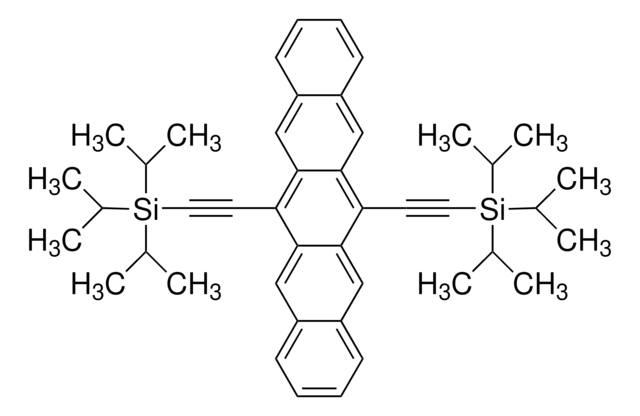
![Dithieno[3,2-b:2′,3′-d]thiophene 97% (HPLC)](/deepweb/assets/sigmaaldrich/product/structures/502/826/9222eb9f-669e-4f11-ad3a-91a3d43058cd/640/9222eb9f-669e-4f11-ad3a-91a3d43058cd.png)
